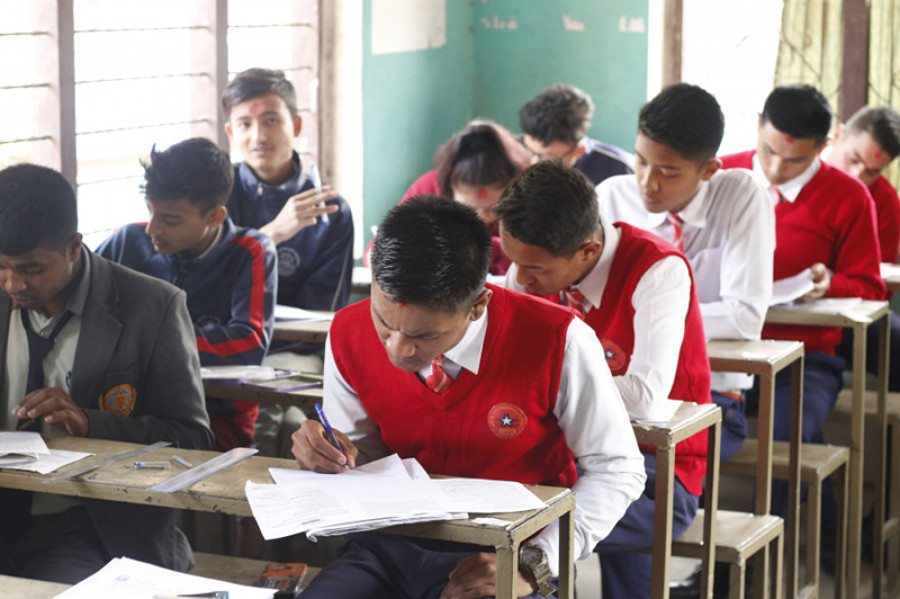National
Government and private schools at loggerheads over curriculum even as grade 11 classes begin
School operators say this is not the right time to introduce new courses.
Binod Ghimire
The Ministry of Education and private schools are at loggerheads over the new curricula for grade 11 even as many of them have already started classes for students.
In a circular on Tuesday, the ministry reminded schools across the country that the government has already introduced new curricula and asked them to devise teaching-learning activities accordingly. It also asked guardians to ensure before enrolling their children that the respective schools have adopted the new curricula.
“Parents and guardians are informed that the final evaluation would be done based on the new curriculum,” reads the circular. “It is, therefore, necessary to make an inquiry about the curriculum the respective schools are adopting before enrolling the children.”
Private educators, however, are in no mood to go for the new curricula the ministry is trying to enforce. They argue that it is not a wise decision to introduce new curricula at a time when the entire country is reeling under the coronavirus crisis.
“We have informed Education Minister Giriraj Mani Pokharel several times about our inability to shift to another curriculum,” said Lok Bahadur Bhandari, general secretary of the Higher Institutions and Secondary Schools’ Association, which brings together private schools running grades 11 and 12.
“We have already started teaching-learning activities based on the existing curricula.”
As per the Secondary Education Examination results published by the National Examination Board on August 17, some 450,000 students are eligible to join grade 11 this year. Of the 482,986 who had registered for the exams, the examination controller’s office had received the marks for 472,078 students from their respective schools.
Bhandari said there needs to be a proper orientation for teachers and the government needs to inform the students about the new curriculum before introducing it.
“We have expressed concerns to Prime Minister KP Sharma Oli as well. He is positive about our concern,” said Bhandari. “We will talk to Pokharel after the Dashain leave.” The education minister is in isolation after getting infected with Covid-19.
According to the new curriculum, students will have to study six subjects each in grades 11 and 12 instead of the five at present. Three of these subjects are compulsory—English, Nepali and Social Studies in grade 11 and Life Skills Education in grade 12—and three others students can choose as per their study interest later in college. There are 80 elective subjects divided into four groups.
The new courses, according to the Curriculum Development Centre, have been designed to switch to a single-track curriculum for grades 11 and 12 from a system of four disciplines currently in practice and students after grade 10 Secondary Education Examination join one of Science, Management, Humanities and Education.
They have been studying five subjects in each discipline.
Government officials say the curriculum wasn’t adopted overnight. In order to make high school education integrated from grades 9 to 12, the Ministry of Education had decided in January to replace the curricula. “It would be wrong to say there wasn’t enough time to adopt it,” said Ganesh Bhattarai, director at the Curriculum Development Centre.
The ministry, in its circular, has also asked the local governments to monitor if the schools abide by the decision. The representatives of local governments, however, say the federal government’s decision is impractical and it cannot ask them to ensure that its decision is followed.
“Is this the right time to make changes in our study?” asks Ashok Kumar Byanju, chairperson of the Municipal Association Nepal. “We won’t follow the federal government’s decision made without consulting with us.”




 9.7°C Kathmandu
9.7°C Kathmandu














